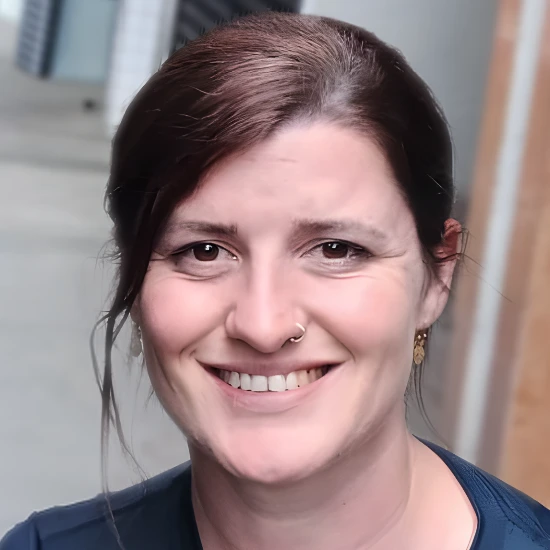November 19th
9:00am–6:30pm
Welcome
,
Welcome to UX Australia 2025
The Browser Strikes Back: Rethinking the Modern Dev Stack
Jono Alderson, Technical SEO consultant
Modern browsers give us powerful tools for layout, animation, state, storage and more - the kinds of things we once had to reach for JavaScript libraries and frameworks to achieve. This session makes the case for treating the browser as an ally, rather than an enemy, and shows how leaning into its native capabilities can unlock simpler, faster and more resilient ways to build.
Coffee and more!
,
Need a quick breather? Or why not share your thoughts with others attending? We'll be back soon.
The Evolution of Frontend System Design
Juntao Qiu, Developer / Author / Creator Atlassian
Frontend starts with a single “happy-path” mockup, but real apps must handle many dimensions—internationalization, accessibility, varying devices, performance constraints, and data complexity.
In this talk, we map the evolutionary path of frontend system design: from static pages, to components, shared state, caching, normalization, performance optimization, and beyond. Learn to locate your project on this journey and discover the next essential system concept to embrace.
BFFs could be your new Best Friends Forever
Lovee Jain, Senior Software Engineer Prezzee
An introduction to Backend for Frontend pattern and how we are trying to move to a better architecture using the same at Prezzee. The talk explains about the common problem that many organisations face when trying to move from monoliths to micro-services and how having BFFs could be helpful. I also talk about when not to use BFFs and can give a brief overview and demo of how we might implement it in Google Cloud.
Offline AI Web Apps
Zach Jensz, Software Engineer
Zero load time - even on spotty or no WiFi?
Zero API keys - LLMs in-browser, offline, private?
Zero app store - no cut to Apple or Google?
All are possible on the web today!
Powerful APIs such as Service Worker, Cache, IndexedDB, OPFS, webGPU and more are shrouded in misconception. We'll dig into their history, enabling exceptional UX along the way - and peer into the future.
Embrace feature flags, unlock better customer experience and developer confidence
Geshan Manandhar, Senior Software Engineer Simply Wall St.
To stay ahead, focus on providing an excellent customer experience. Remember, deploying code is just a technical task while releasing a new feature is a business process. Big releases can be risky, so use feature flags to limit any potential issues and ensure smoother releases.
In this talk, you’ll discover how we used feature flags in real-life situations, such as gradually releasing stock portfolios linked to brokers to thousands of users. You will learn how we applied feature flags to manage limits on those portfolios incrementally and safely. Hear about over a decade-long experience using feature flags spanning multiple companies and tools.
Adopting a feature flag mindset is key to improving customer experiences and boosting developer confidence. You’ll learn how to release features step-by-step: first to your team, then to the whole company, and after that, starting with just 1% of customers and gradually expanding to all customers. Join this session to understand how to safely test major features on production with almost no customer impact while keeping developers (yourself) happy.
Lunch
,
Grab some lunch and connect with fellow attendees after an intense morning.
Understanding Recursion for Elegant Solutions
Ryan Yu, Lead Frontend Engineer Marigold
Recursion often feels complex to engineers, but once it clicks, it opens up an entirely new way of solving problems.
This talk will start with a brief explanation of recursion including how it works under the hood in JavaScript and how to avoid stack overflow issues. From there, we will go through real-world examples by comparing iterative and recursive approaches and demonstrate how recursion can help cleaner and more readable code.
We will also see examples where recursion is the more suitable or even necessary approach.
Form control styling
Tim Nguyen, WebKit Engineer Apple
Text inputs, checkboxes, radio buttons, sliders… Form controls have been part of the web since the beginning, but styling them can still feel like a battle.
If you’ve spent time struggling to figure out countless lines of CSS to make them look right, or rebuilt native elements from scratch because they weren’t customizable enough, you’re not alone.
In this session, we’ll explore why HTML form controls have been so hard to style — and introduce upcoming improvements that will make them easier to customize, using only the power of CSS.
You’ll also get a peek at how form controls have evolved, and how the new enhancements fit into the broader web ecosystem. If you’ve ever struggled with form controls, this talk will give you practical insight and a glimpse of what’s next.
Supercharged scrolling with CSS
Lee Meyer, Software Engineer
Scrolling has come a long way since the concept originated in ancient Egypt. In this talk, we’ll blast through the evolution of scrollytelling — from JavaScript hacks to modern, declarative CSS magic. You’ll learn how scroll-timeline, view-timeline, and scroll-state queries unlock rich, interactive storytelling with minimal CSS and no scripting.
Afternoon coffee, tea and more
,
Catch your breath and get a coffee or tea and an afternoon pick me up
Let No One Ignorant of Geometry Enter
Dmitry Baranovskiy, Staff Experience Developer Adobe
Geometry has always been the silent architect of art, design, and technology — from ancient Greek thinkers to the work of Newton.
In this talk, we’ll trace a surprising lineage of ideas, from proportions and perspective to spirals and symmetry, and see how they still shape the way we design and code for the web today.
You’ll leave with a new appreciation for the invisible mathematics behind creativity — and maybe even the urge to explore it yourself.
Happy hour (and a half)
,
Join us for a drink and great conversation to close the day. Great non-alcoholic options and food as well!
November 20th
9:00–5:00pm
Welcome Back!
,
Welcome to day two of UX Australia 2025
What’s beyond the browser: the AI platform shift
Rupert Manfredi, Founder Unternet
We’re at the beginning of a major platform shift. Artificial intelligence is enabling a new kind of computer that upends the entire stack — from how we design interfaces, to how we build and distribute software, to what we even mean by an “app.”
In this session, we’ll explore how AI clients will displace the web and traditional apps, and why it’s urgent that this platform develops in the open. We’ll discuss emerging protocols, and consider what it means to create and publish for an ecosystem that’s still taking shape.
Coffee and more!
,
Need a quick breather? Or why not share your thoughts with others attending? We'll be back soon.
How to Build an Agent in JavaScript
Kevin Yank, Principal Architect for Front End Engineering Culture Amp
As engineers, it is hard (and arguably unwise) to trust "magic". What then should we do when our industry is flooded with "magical" new tools that promise to change the game?
The best way to see through a magic trick is to learn to do it yourself!
Based on the seminal blog post by Thorsten Ball from Amp, "How to Build an Agent, or: The Emperor Has No Clothes", this talk will dispel the illusion of magic surrounding agent-powered code editors like Amp, Claude Code, Copilot, Cursor, Windsurf, and Zed. Together, we will build our own coding agent in only ~400 lines of not-very-exciting JavaScript, and use it to complete some realistic coding tasks.
Armed with this clear understanding of how coding agents work under the hood, you will be better able to reason about how and when to use them in your own work.
Teaching Your Frontend Tools to Talk to AI
Anna McPhee, Developer Automattic
AI agents are already connecting to frontend development workflows through Model Context Protocol, and the results are impressive. From React component generation to Figma-to-code pipelines, there's a growing ecosystem of MCP servers that frontend developers can plug into today. I've been exploring what's actually working in practice - which integrations deliver real value, what patterns are emerging across successful MCP servers, and where the biggest opportunities still lie.
I'll demo some of the most compelling examples, show you how to evaluate and integrate existing MCP tools into your workflow, and share what I've learned about building frontend-focused MCP integrations that developers actually want to use.
When AI Stops Talking and Starts Doing
Tamas Piros, Director of Developer Advocacy Cloudinary
Generative AI is great at producing text — but what happens when it can actually do things? This talk explores the shift from AI as a conversational partner to AI as an active participant in real-world workflows.
We’ll look at how to connect AI systems to external tools and APIs using the Model Context Protocol (MCP). Instead of stopping at answers, AI can now execute file operations, manage digital assets, analyse images, and automate tasks that normally require human intervention. The result is a move from “chatting with AI” to “working with AI.”
Through practical examples, you’ll see how to:
- Extend AI beyond text into action-oriented workflows.
- Safely connect AI models to existing developer tools and services.
- Combine structured function calls with unstructured conversation.
Build AI-powered assistants that handle files, images, and APIs as part of a single seamless interaction.
This session isn’t about abstract futures — it’s about what you can build today. Whether you’re a developer, architect, or product builder, you’ll leave with a clear understanding of how to bridge the gap between natural language input and real-world execution.
AI that acts changes the role it plays: from passive responder to proactive teammate. Come see what happens when AI stops talking — and starts doing.
Lunch
,
Grab some lunch and connect with fellow attendees after an intense morning.
Developing a Shared Language for Designers and Engineers
Mandy Michael, Lead Software Engineer Octopus Deploy
The designer/engineer handoff is notoriously challenging. Communication gaps, mismatched terminology, and working in different environments often lead to friction and misinterpretation.
In this talk, Mandy explores how documentation, tools, and workflows can evolve into a common vocabulary designers and engineers can rely on. We’ll discuss tips for writing guidelines and examine tools like Figma Code Connect and the Figma MCP Server, which can ensure consistency from design files to production code.
State of identity and authentication on the web
Eiji Kitamura, Developer Advocate Google
With power of the browser, identity and authentication landscape on the web is rapidly evolving.
Passkey introduces a simple and phishing resistant authentication.
FedCM introduces streamlined, browser mediated identity federation.
Digital Credential introduces trusted identity verification.
This session walks through the latest identity and authentication APIs you should care.
A false sense of accessibility: What automated testing tools are missing.
Beau Vass, Technical Lead, Digital Accessibility Practice TTC Global
It’s commonly understood that automated accessibility testing tools can find around 20-30% of accessibility issues, but what does this actually mean in practice? What are the other 70-80% of issues they are missing, and why?
Beau takes a closer look at these tools using specific examples, demonstrating the types of accessibility issues automated testing tools won't find, and why that is the case.
If you or your organisation have considered using an automated accessibility testing tool, it is essential to understand how these tools work and identify issues - and even more importantly, the ways they don't work - to ensure they are not just providing a false sense of accessibility.
From Components to Prompts: Rethinking Design Systems in the Open
Tammie Lister, Co-founder Guildenberg
What happens to design systems when automation becomes part of the workflow? As someone who's spent years contributing to open source systems, I've watched how new tools are changing how we think about design systems, components, patterns, and documentation. I have seen how AI has sped up the need for open source to be based on design systems.
In this talk I’ll explore why open design systems provide the strongest foundation for these new workflows, and how transparent, community-driven approaches give us the flexibility to adapt and evolve. You'll walk away with practical insights about building on open foundations, what implementation challenges to expect, and how to start experimenting within your own design system work.
Afternoon coffee, tea and more
,
Catch your breath and get a coffee or tea and an afternoon pick me up
Machines Are Customers Too
Katja Forbes, CX Evolutionist & author
What if your next customer isn’t human? In a world increasingly run by AI, machines are rapidly becoming independent economic actors, making buying decisions without human intervention.
In her provocative talk, "Machines Are Customers Too," Katja Forbes challenges businesses to radically rethink their approach to customer experience. She unveils how traditional customer journeys, trust-building, and engagement strategies must evolve to accommodate AI-driven agents and autonomous systems as genuine customers. Leveraging her award-winning expertise in CX innovation, Katja delivers a compelling vision of the near future: one where the customer is code, and loyalty is algorithmic.
This bold session isn’t just speculative. Katja provides actionable frameworks and a clear roadmap, empowering leaders to adapt, innovate, and harness this shift as a powerful engine for growth. Prepare to rethink everything you know about your customers. The future is here…machines are buying.
Farewell
,
Find the conference pass for you
Attend Dev Summit by itself, or add our Next, AI Engineering AI or Enqueue conferences to the mix.
Special Pricing & Team Offers
To make your budget go as far as possible, we have special pricing as follows. Choose your ticket type to see the associated price and the savings you can make.
Self-Funded is anyone paying their own way, regardless of who your employer might be. junior is someone in a junior or early-career role. edu is for anyone at an educational institution, could be an educator, but could be in another role. NFP is for anyone working at a not-for-profit. And Agency is for anyone working in an agency.
What's included?
In person
In-person conferences are fully catered (morning and afternoon tea and lunch) including any dietary requrements. Our conferences feature amazing coffee (and more). Code also features a reception.
Streaming
Streaming passes include access to the conference livestream on our very own platform Conffab, including live captioning and chat, access to the stream on demand after the event and to the conference videos when they become available.
Partner with us
Keen to reach hundreds of the leading web engineers in the country? We bring them together in one place, fuel them with coffee and amazing talks and reignite their excitement.
We work closely with our partners and their technologies to deliver world leading online conferences. Contact us to talk more about how we work can work with you to help you be even more awesome.
Key Partners

About Us
Co-founded and now run by John Allsopp, Web Directions has for nearly 20 years brought together leading developers, engineers, visual, IxD, UX and product designers, Art and Creative Directors, product managers indeed everyone involved in producing web and digital products to learn from one another, and the World's leading experts across this vast field.
We spend our lives thinking about what comes next, keeping up with trends in technology, practices and processes, and filtering the hype, to make sure you don't miss trends that matter, and don't waste time on hype that doesn't.
We promise attending one of our events will leave you significantly better versed in the challenges you face day to day, and in solutions for addressing them.

John Allsopp
John Allsopp has been working on the Web for nearly 30 years. He's been responsible for innovative developer tools such as Style Master, X-Ray and many more. He's spoken at numerous conferences around the World and delivered dozens of workshops in that time as well.
His writing includes two books, including Developing With Web Standards and countless articles and tutorials in print and online publications.
His "A Dao of Web Design" published in 2000 is cited by Ethan Marcotte as a key influence in the development of Responsive Web Design, who's acclaimed article in 2010 begins by quoting John in detail, and by Jeremy Keith as "a manifesto for anyone working on the Web".
Code of Conduct
For over a decade, we've worked hard to create inclusive, fun, inspring and safe events for the Web Industry.
As part of our commitment to these values, we've adopted a code of conduct for all involved: ourselves, our speakers, our partners and our audience.
If you have any concern or feedback, please don't hesitate to contact us.
















